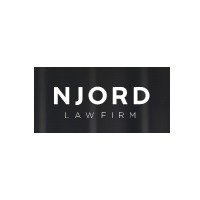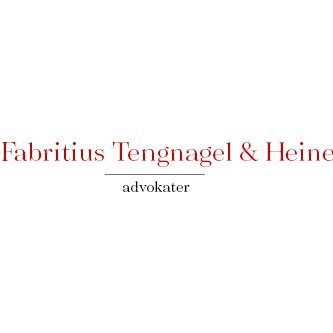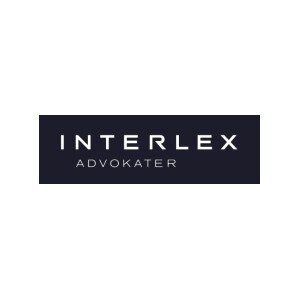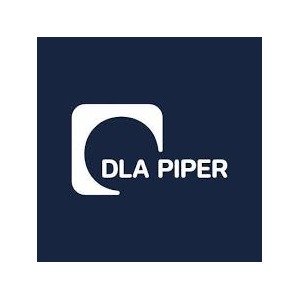Best Mining Law Lawyers in Denmark
Share your needs with us, get contacted by law firms.
Free. Takes 2 min.
Or refine your search by selecting a city:
List of the best lawyers in Denmark
About Mining Law in Denmark
Mining Law in Denmark encompasses the set of rules and regulations governing the exploration, extraction, and utilization of mineral resources within Denmark, including Greenland and the Faroe Islands (which may have special autonomy and legislation). The primary purpose of Danish Mining Law is to balance resource utilization with environmental protection, social responsibility, and sustainability. This area of law covers the licensing framework, environmental assessments, taxation, rights and obligations of involved parties, and land use considerations.
Denmark has a longstanding tradition of environmental stewardship, which is reflected in its mining regulatory regime. Projects involving minerals such as limestone, sand, gravel, and potentially rare earth elements must comply with strict regulations aimed at mitigating environmental impact while ensuring fair exploration and production opportunities for Danish and foreign stakeholders.
Why You May Need a Lawyer
Navigating Mining Law in Denmark involves complex legal procedures, comprehensive regulations, and multifaceted contractual arrangements. Individuals and businesses may require legal assistance for a variety of reasons:
- Applying for exploration or exploitation licenses for minerals
- Negotiating investment or joint venture agreements
- Understanding tax and royalty obligations for mining activities
- Complying with environmental protection and impact assessment requirements
- Resolving disputes with landowners, governmental agencies, or other stakeholders
- Interpreting local and international corporate social responsibility standards
- Managing cross-border mining operations involving Greenland or the Faroe Islands
- Addressing criminal, civil, or administrative sanctions for regulatory violations
- Transferring or selling mining licenses or properties
- Handling employee and labor law considerations for mining operations
Given these complexities, specialized legal counsel ensures compliance, reduces risks, and protects your interests during any phase of a mining project in Denmark.
Local Laws Overview
Key legislation governing mining activities in Denmark includes the Danish Subsoil Act (Undergrundsloven) and related executive orders. In Greenland, the Greenlandic Mineral Resources Act applies, reflecting substantial local autonomy. The Danish government regulates rights to explore and extract minerals in the Danish mainland and marine areas, while self-government authorities oversee activities in Greenland and the Faroe Islands, often subject to cooperation with the Kingdom of Denmark.
Major legal requirements for mining activities in Denmark include:
- Obtaining the proper exploration and exploitation licenses from the Danish Energy Agency or local authorities
- Conducting a thorough environmental impact assessment and adhering to strict environmental protection rules
- Consulting with affected landowners and respecting land use planning regulations
- Abiding by reporting, disclosure, and operational requirements set by authorities
- Paying applicable taxes, royalties, and duties to public administration bodies
- Complying with health and safety standards for workers
- Ensuring transparency and responsible business conduct, particularly for foreign investors
Legal frameworks in Denmark require ongoing communication with governmental and local bodies, and timely adaptation to changes in legislation or policy.
Frequently Asked Questions
What minerals are covered under Danish Mining Law?
Mining Law in Denmark covers all mineral resources onshore and offshore, including metals, industrial minerals, and construction materials like sand, gravel, and limestone. Certain resources such as hydrocarbons (oil and natural gas) may be regulated separately.
Who owns mineral resources in Denmark?
In Denmark, mineral resources beneath the ground are generally owned by the state. Private or municipal landowners have rights concerning surface land, but subsurface mineral rights remain with the public unless otherwise specified.
How are mining licenses awarded?
Mining licenses are granted by relevant governmental authorities, often following a public tender process or individual application. The licensing process typically requires submission of technical, environmental, and financial information.
What environmental requirements must be met?
All mining projects are subject to environmental impact assessments. Operators must comply with environmental protection laws, minimize disruptions, rehabilitate sites post-extraction, and implement comprehensive waste management plans.
Are there special rules for Greenland or the Faroe Islands?
Yes. Greenland and the Faroe Islands have significant autonomy and their own legal frameworks for mineral resource management. Applicants must comply with local regulations and engage with local authorities.
Do foreign companies have the right to mine in Denmark?
Foreign entities can apply for mining licenses and undertake mining operations in Denmark, provided they comply fully with local laws, tax arrangements, and environmental regulations.
What happens if a mining company violates the law?
Violations can result in administrative fines, revocation of licenses, civil liability for damages, or, in severe cases, criminal prosecution. Authorities may require remediation of environmental harm as well.
How are communities affected by mining protected?
Mining operators must conduct consultations with affected communities and landowners, respect zoning restrictions, implement health and safety measures, and undertake social impact assessments where required.
Are there reporting or disclosure obligations?
Yes. Mining operators are required to regularly report operations, production volumes, environmental monitoring data, and financial information to authorities as part of their licensing conditions.
How long does the licensing process take?
The time for obtaining exploration or exploitation licenses can vary depending on the complexity of the project, required assessments, and public consultations, but it typically ranges from several months to over a year.
Additional Resources
Several organizations and governmental bodies provide information, guidance, and regulatory oversight for mining activities in Denmark:
- Danish Energy Agency (Energistyrelsen) - oversees mainland and offshore mineral activities
- Ministry of Climate, Energy, and Utilities
- Greenland’s Ministry of Mineral Resources
- Faroe Islands Ministry of Environment, Industry and Trade
- Danish Environmental Protection Agency (Miljøstyrelsen)
- Danish Business Authority (Erhvervsstyrelsen)
- Local municipalities for land use and planning matters
- International Chamber of Commerce in Denmark for cross-border investment
- National and local mining industry associations
- Legal aid clinics and specialized law firms in mining and resource law
Next Steps
If you require legal advice or assistance in the mining sector in Denmark, consider the following steps:
- Clearly define the scope and objectives of your mining project or issue
- Gather all relevant documentation such as land records, previous permits, or business registration
- Consult available resources and governmental guidelines on mining regulations
- Identify and contact a lawyer or legal firm specializing in Mining Law in Denmark
- Prepare a list of questions relating to your concerns or interests
- Arrange an initial consultation to assess legal requirements, compliance strategies, and risk management
- Continue communication with your legal advisor throughout the lifecycle of your mining project
By seeking expert legal support early, you can ensure that your mining activities are compliant, efficient, and maximally protected under Danish law.
Lawzana helps you find the best lawyers and law firms in Denmark through a curated and pre-screened list of qualified legal professionals. Our platform offers rankings and detailed profiles of attorneys and law firms, allowing you to compare based on practice areas, including Mining Law, experience, and client feedback.
Each profile includes a description of the firm's areas of practice, client reviews, team members and partners, year of establishment, spoken languages, office locations, contact information, social media presence, and any published articles or resources. Most firms on our platform speak English and are experienced in both local and international legal matters.
Get a quote from top-rated law firms in Denmark — quickly, securely, and without unnecessary hassle.
Disclaimer:
The information provided on this page is for general informational purposes only and does not constitute legal advice. While we strive to ensure the accuracy and relevance of the content, legal information may change over time, and interpretations of the law can vary. You should always consult with a qualified legal professional for advice specific to your situation.
We disclaim all liability for actions taken or not taken based on the content of this page. If you believe any information is incorrect or outdated, please contact us, and we will review and update it where appropriate.
Browse mining law law firms by city in Denmark
Refine your search by selecting a city.
















